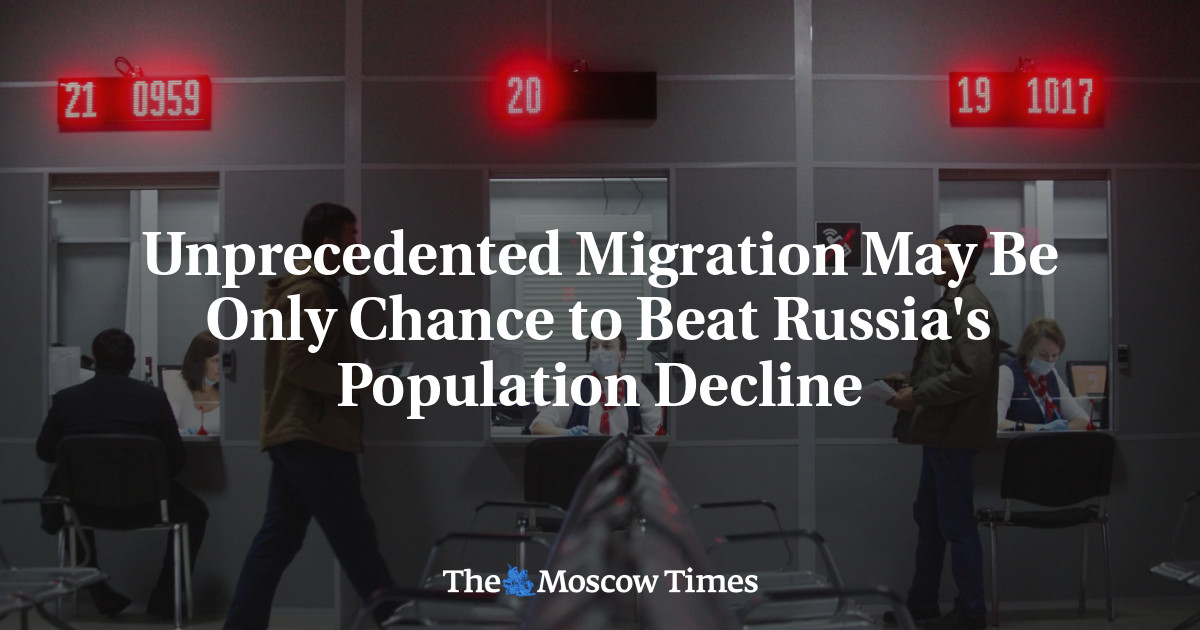
Russia would need to attract as many as 1 million new migrants every year until the end of the century to maintain its current population levels, according to research cited by the RBC news website on Thursday.
Russia’s population has declined for the past four years in a row and dropped by half a million people last year alone, standing at 146.45 million people at the start of 2023.
Moscow’s Higher School of Economics (HSE) made its calculations using three models in which Russia’s population could be maintained at 146 million by 2100.
The best-case scenario used the highest likely life expectancy, fertility, and migration rates, while the worst-case scenario used the lowest likely figures in all three categories.
HSE’s worst-case scenario envisages Russia’s population dropping to 67.4 million people unless the country can attract 1.1 million migrants every year over the next 80 years.
“Since such high values of compensatory migration are impossible to achieve, we can conclude that the population is expected to decline even under the most favorable scenarios of birthrates and mortality,” RBC cited the authors as saying.
The authors also noted that in the best-case scenario, high birthrates and longer lifespans would only require so-called compensatory migration until 2036, after which Russia’s population would be able to maintain itself without depending on migration.
However, the far more likely average scenario requires an average of 390,000 new migrants arriving in Russia annually.
But even in the case of the average outlook, Russia’s population is expected to dip below 146 million in the early parts of the 2021-2100 forecast period unless compensated by 900,000 migrants a year throughout that period. RBC did not specify the cut-off year for the early forecast period.
Russia’s statistics agency recorded a drop in migration to Russia from almost 430,000 in 2021 to just 61,900 in 2022, according to RBC.
HSE’s forecasts did not factor in Russian military losses or the enormous exodus of Russian citizens following the country’s invasion of Ukraine, however.
“We should expect a somewhat larger-than-projected natural decline, as well as an increase in emigration and immigration flows” due to the war, RBC cited the study’s authors as saying.
“The extent of their impact is yet to be assessed, especially since military operations were still ongoing at the time of writing,” the study authors, Maria Vinnik and Valery Yumaguzin, said.